A bold call to action echoed through the halls of the UN Headquarters during a high-level event held on the sidelines of the 2025 High-Level Political Forum (HPLF).
Convened by the Global Leaders Network for Women’s, Children’s and Adolescents’ Health (GLN), the event galvanized renewed urgency to end the preventable deaths of mothers and children, elevating survival as a moral imperative.
A United Front for Survival
Under the theme “Accelerating Progress on Maternal, Newborn, and Child Survival: Political Leadership and Evidence-Based Solutions,” the event was co-organized with the Governments of South Africa and Nigeria, alongside PMNCH, UNICEF, UNFPA, EWENE, Child Survival Action and WHO. It brought together ministers, youth advocates, civil society and global health leaders to issue a collective call for urgent and sustained political leadership and country led action.
Despite growing challenges - climate shocks, conflict and economic instability - speakers emphasized a powerful truth: the world already has the tools to save lives – what’s needed now is the political leadership and ownership to use them.
“We cannot continue to watch women and children die when we know how to save them,” said UNICEF Executive Director Catherine Russell. “The interventions are simple, proven and cost-effective. We must act, and we must act now.”
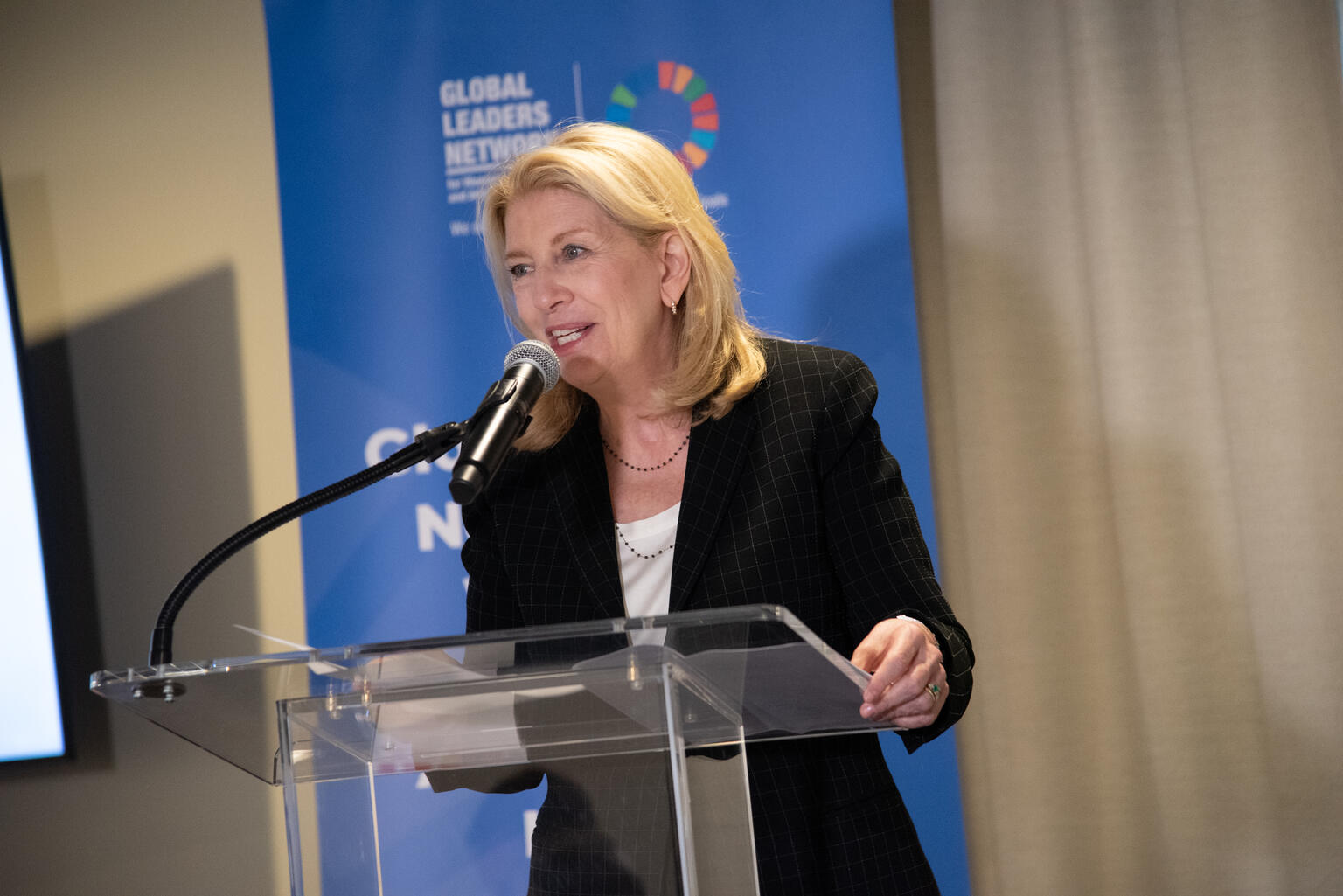
Voices from the frontlines
The event gave the stage to youth and community advocates who shared lived experiences and frontline perspectives.
Gantha, a youth advocate from Iraq, described how entrenched gender norms, misinformation and lack of access continue to put women’s and girls’ lives at risk.
“If the mother is not well, how will she care for her children?” she asked, pointing to the impact of harmful traditional practices, deep-rooted socio-cultural norms and undertrained providers in underserved regions.
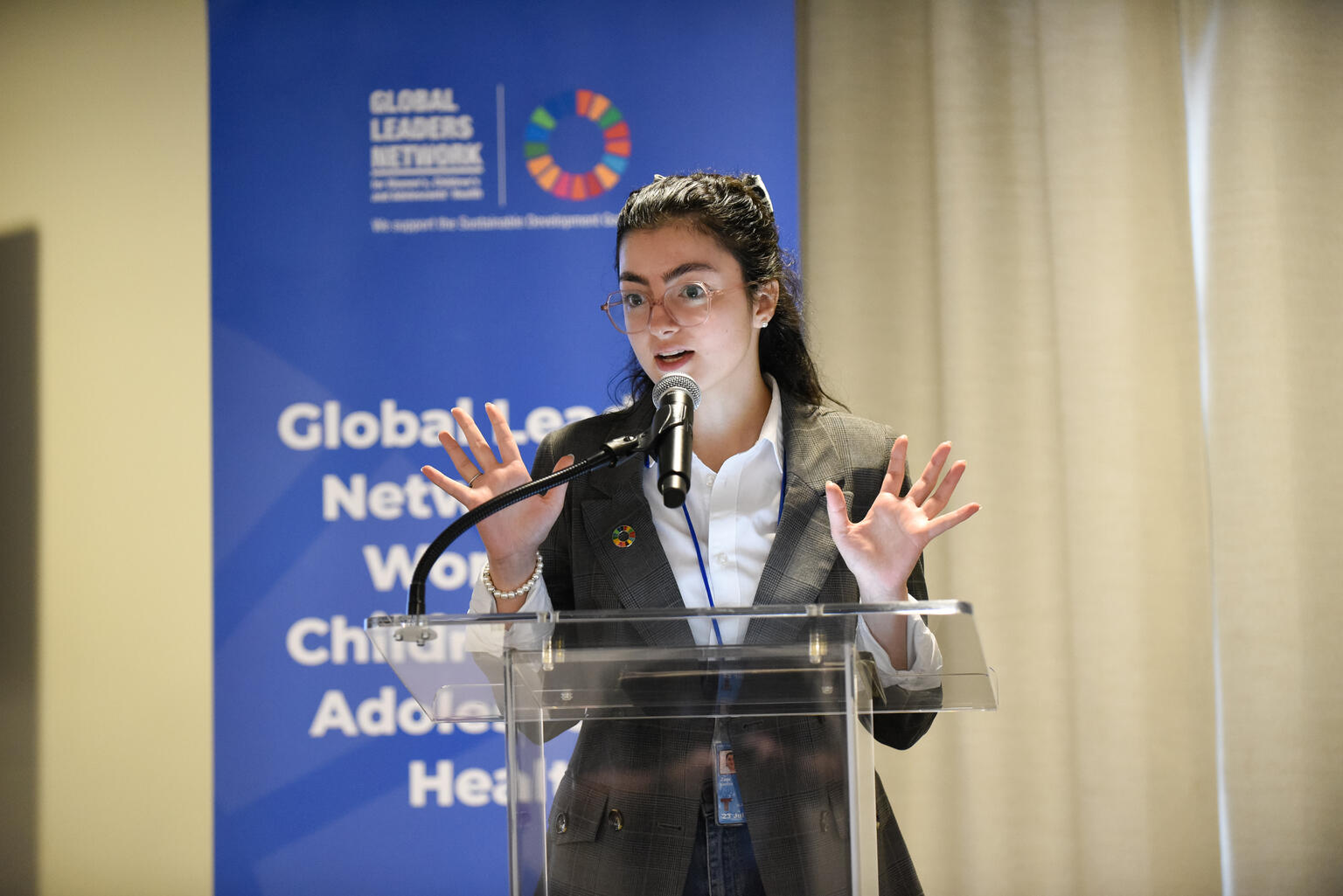
Gantha Zara, United Nations Youth Ambassador to the Advisory Council (UNYAC), speaks during the event.
Sandrine, a UNICEF Youth advocate from Burkina Faso showcased the power of meaningful youth participation in addressing maternal, newborn, and child deaths in Burkina Faso and Velegreat, a Youth Advocate from South Africa noted children’s review of SDG progress as part of country’s reporting at this HLPF and called for increased attention to adolescents’ heath and their needs.
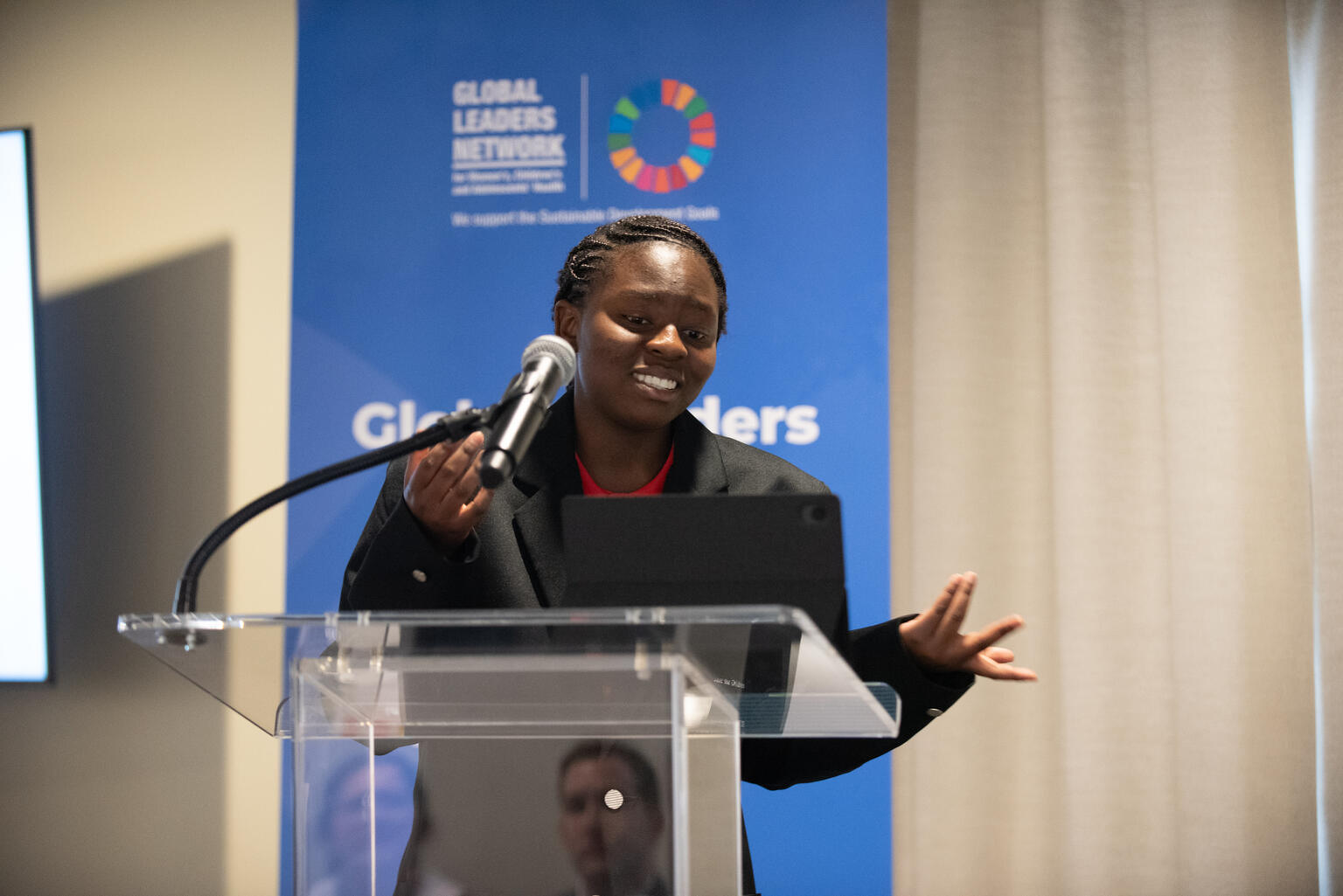
Velegreat, 17, Child Human Rights Defender and climate activist from South Africa, speaks during the event.
Political leadership in action
Ambassador Mathu Joyini, Permanent Representative of South Africa to the United Nations, shared her country’s experience in scaling up prenatal and postnatal services, integrating sexual and reproductive health into primary health care and expanding access to family planning. “We are united in amplifying the voices of communities in every corner of the world, ensuring they remain at the center of political discourse and decision making” she said.
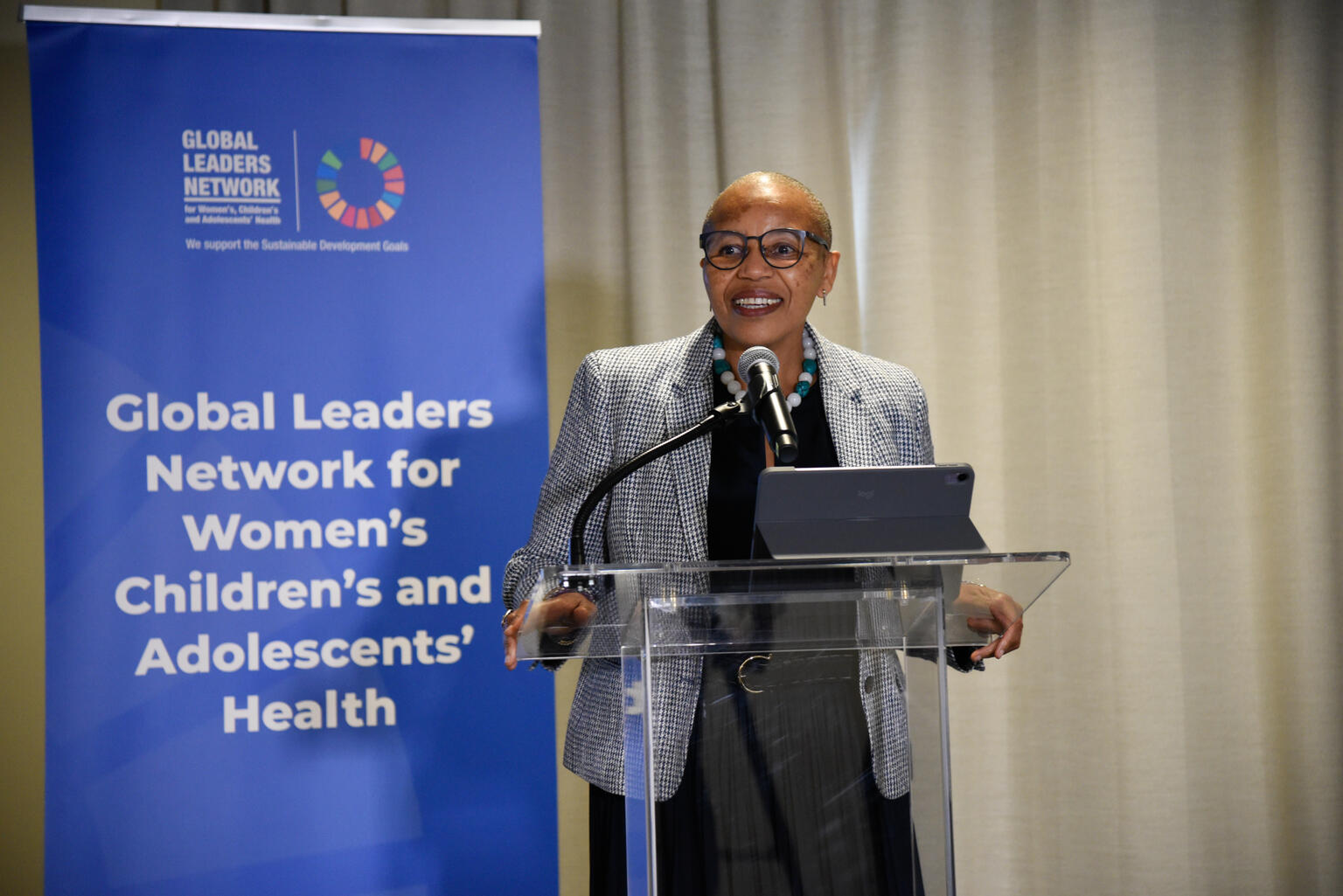
Mathu Joyini, Permanent Representative of South Africa to the United Nations, delivers a keynote speech reflecting on national progress, political strategies and inter-country solidarity under the Global Leaders Network (GLN) for Women’s, Children’s and Adolescents’ Health.
Dr. Muyiwa Aina, Executive Director of Nigeria’s National Primary Health Care Development Agency speaking on behalf of Hon. Dr Muhammad Ali Pate, Coordinating Minister of Health and Social Protection, affirmed his country’s commitment to maternal and child survival in the face of declining external aid. He outlined domestic financing reforms, championed by His Excellency Bola Ahmed Tinubu, President of Nigeria, including strengthened tax collection and more effective public resource allocation, alongside high-impact investments in emergency transport, immunization and workforce training.
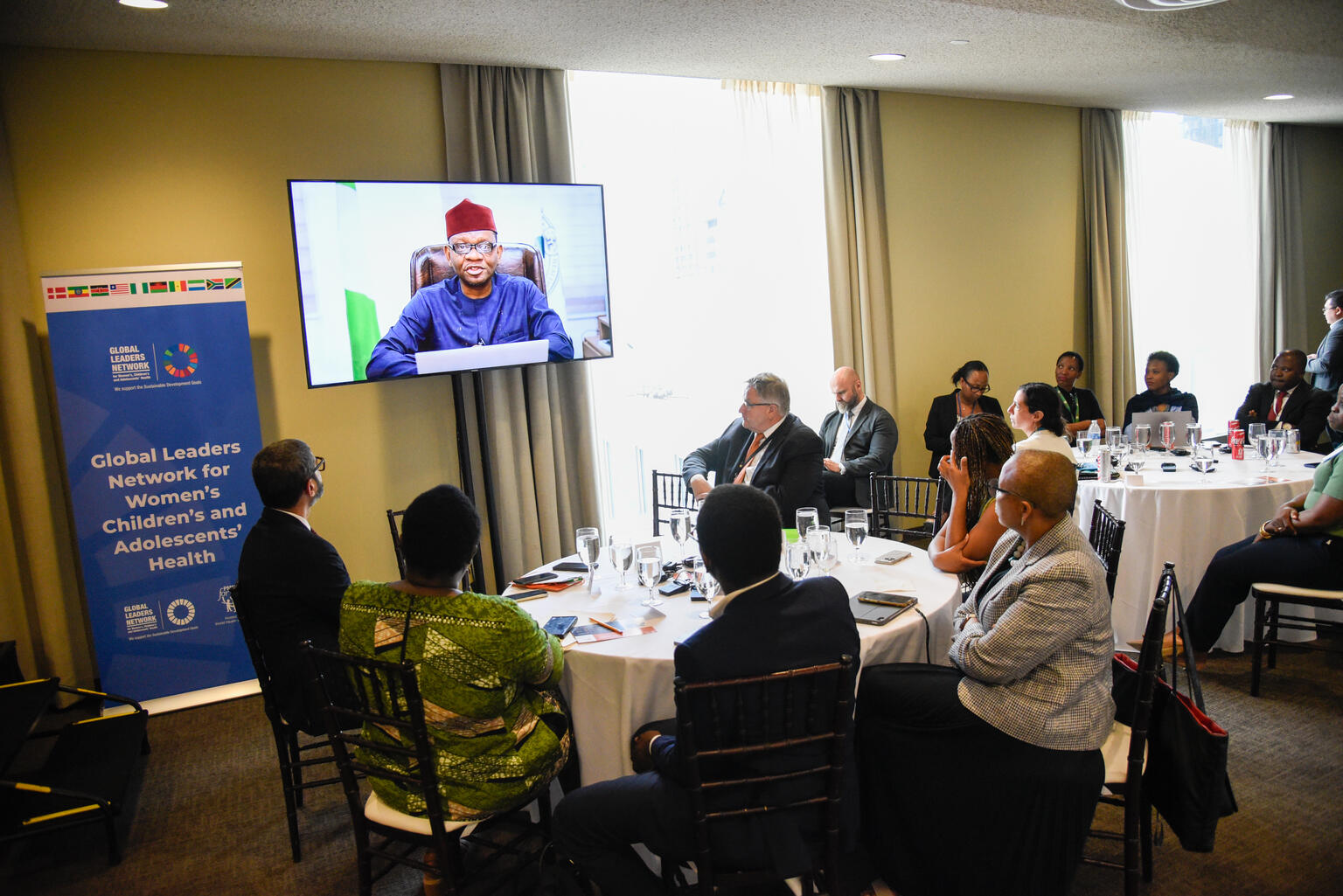
Dr. Muyi Aina (on screen), Executive Director and CEO of the National Primary Health Care Development Agency, Nigeria, delivers remarks via video during the event.
A call to invest in women and children
UNICEF Regional Ambassador and former South African rugby legend Tendai Mtawarira added a compelling call to action:
“Failing to invest in their health and rights is not just a moral failure, it’s an economic one.” warning that the long-term cost of inaction could be eight to nine times higher than the investment required today.
He emphasized the role of cross-sector partnerships to invest in health, nutrition and supportive workplaces, urging collaboration with governments and communities to deliver results, particularly in underserved areas. “If women thrive, families and communities thrive.”
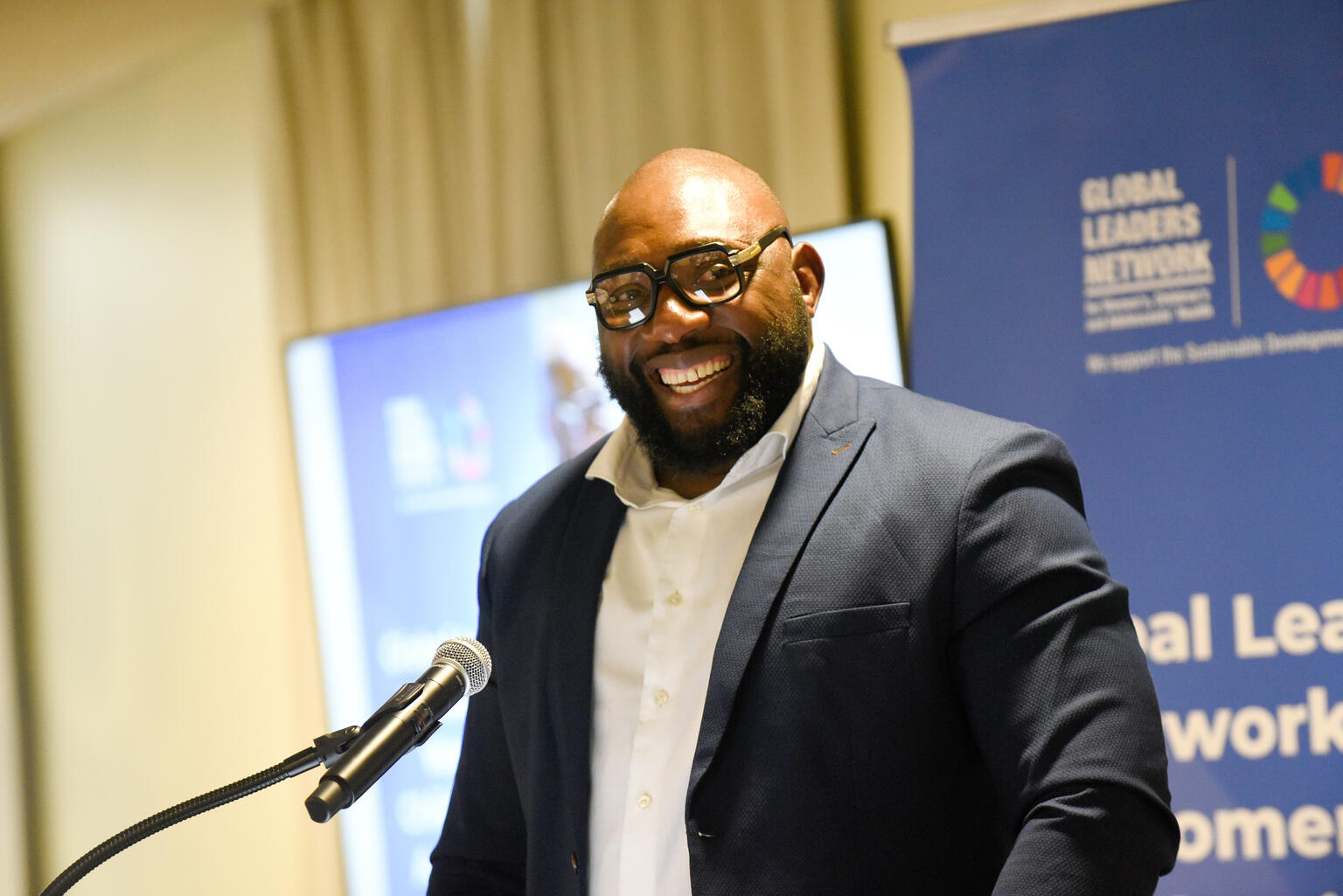
Tendai ‘the Beast’ Mtawarira, UNICEF Regional Ambassador for Eastern and Southern Africa, speaks during the event.
PMNCH: A new strategy for 2026-2030
The event also marked the launch of new PMNCH 2026-2030 strategy announced by Executive Director Dr. Rajat Khosla focusing on equity, accountability and country-led multisectoral action. He cited sobering 2023 statistics - 4.8 million under-five deaths, 1.9 million stillbirths, and 260,000 maternal deaths, most for preventable causes—as evidence of a systemic failure to prioritize survival.
“This cannot be business as usual,” he warned. “Preventable deaths of women, children and newborns are not inevitable. They are a policy failure, a funding failure and above all, a failure of will.”
Mr. Khosla pointed to four essential pillars for meaningful progress: political leadership, sustainable financing, data and accountability and people-centered, inclusive solutions. He praised initiatives like the GLN as examples of high-level political commitment, reaffirming survival not only as a moral imperative, but as the foundation of sustainable development. But with deepening aid cuts and shrinking fiscal space, he stressed the urgent need for countries to prioritize domestic investments in women, children, and adolescents.
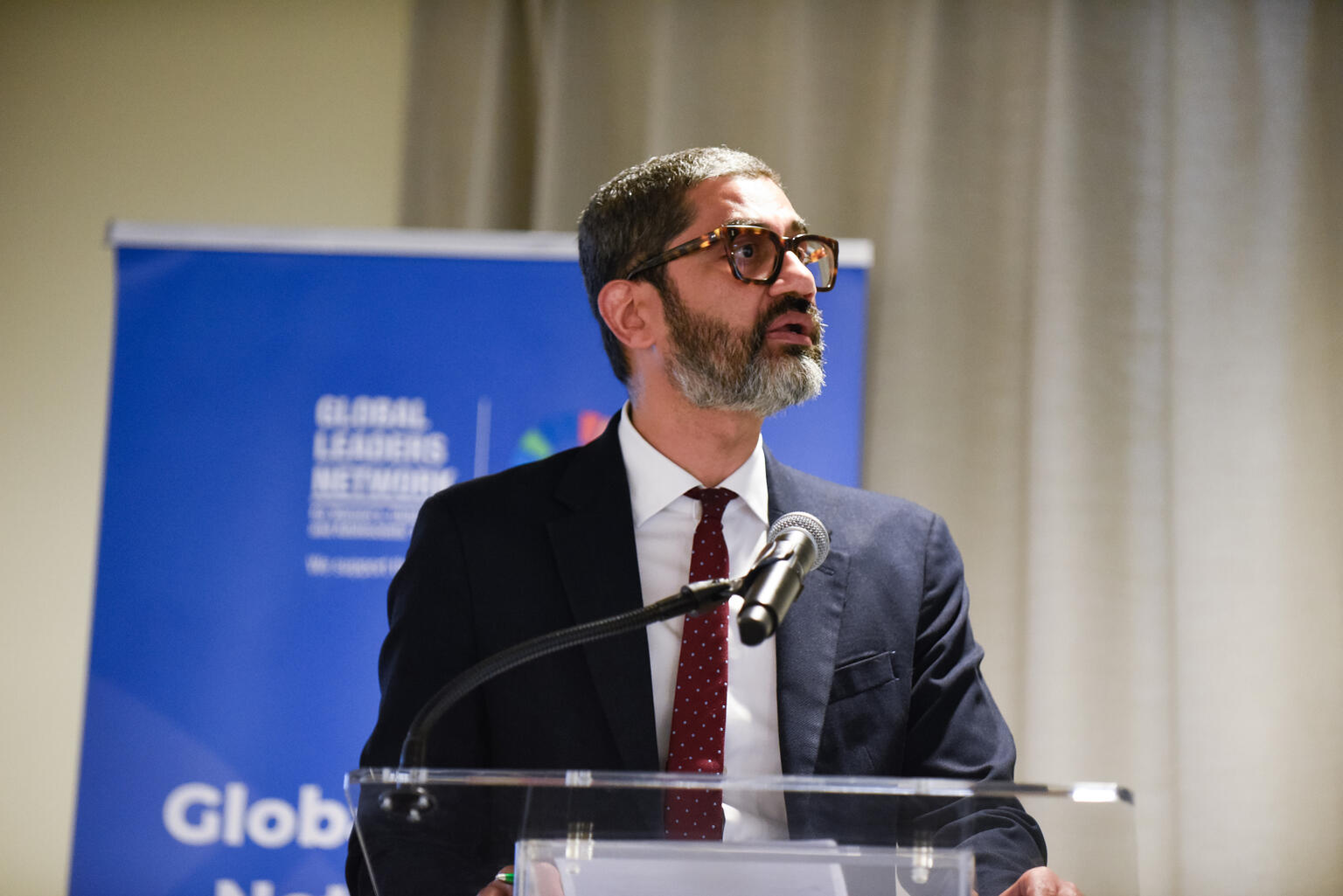
Rajat Khosla, Executive Director of the Partnership for Maternal, Newborn and Child Health (PMNCH), delivers remarks during the event.
The Road to 2030: The time to act is now
With 2030 fast approaching, and amid unprecedented challenges threatening to reverse years of progress the message was clear: the time to act is now. As Tendai Mtawarira said, “Not on our watch."

.png?sfvrsn=6d0e27cd_1)



